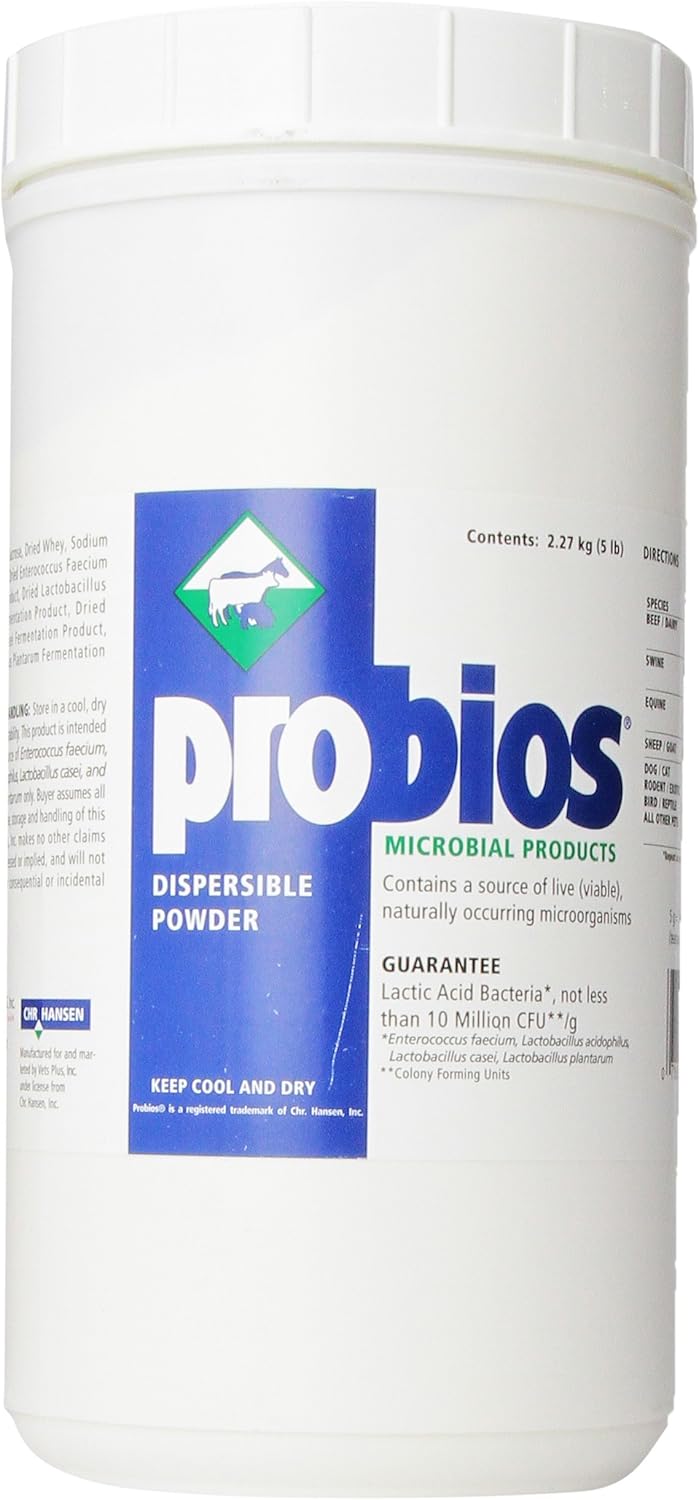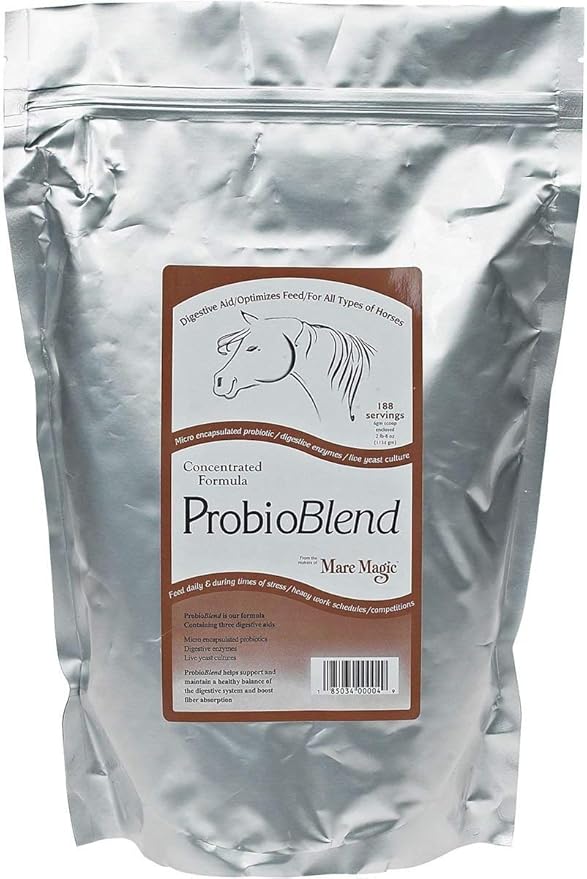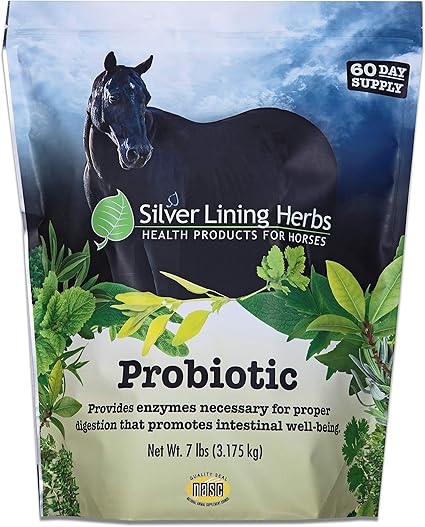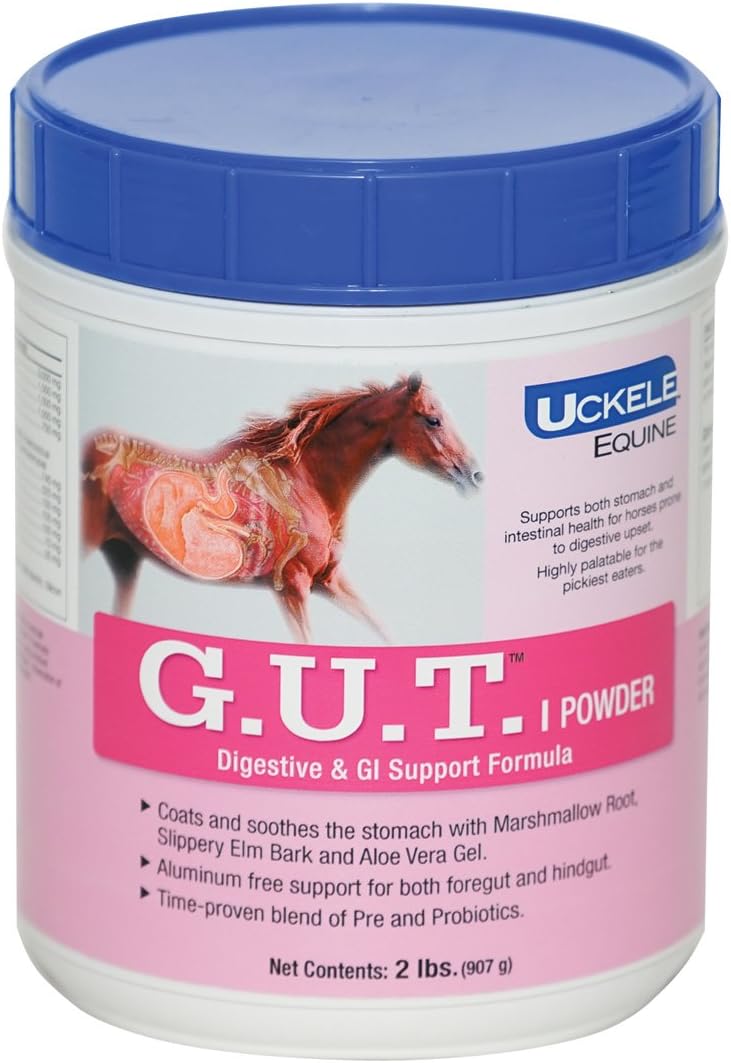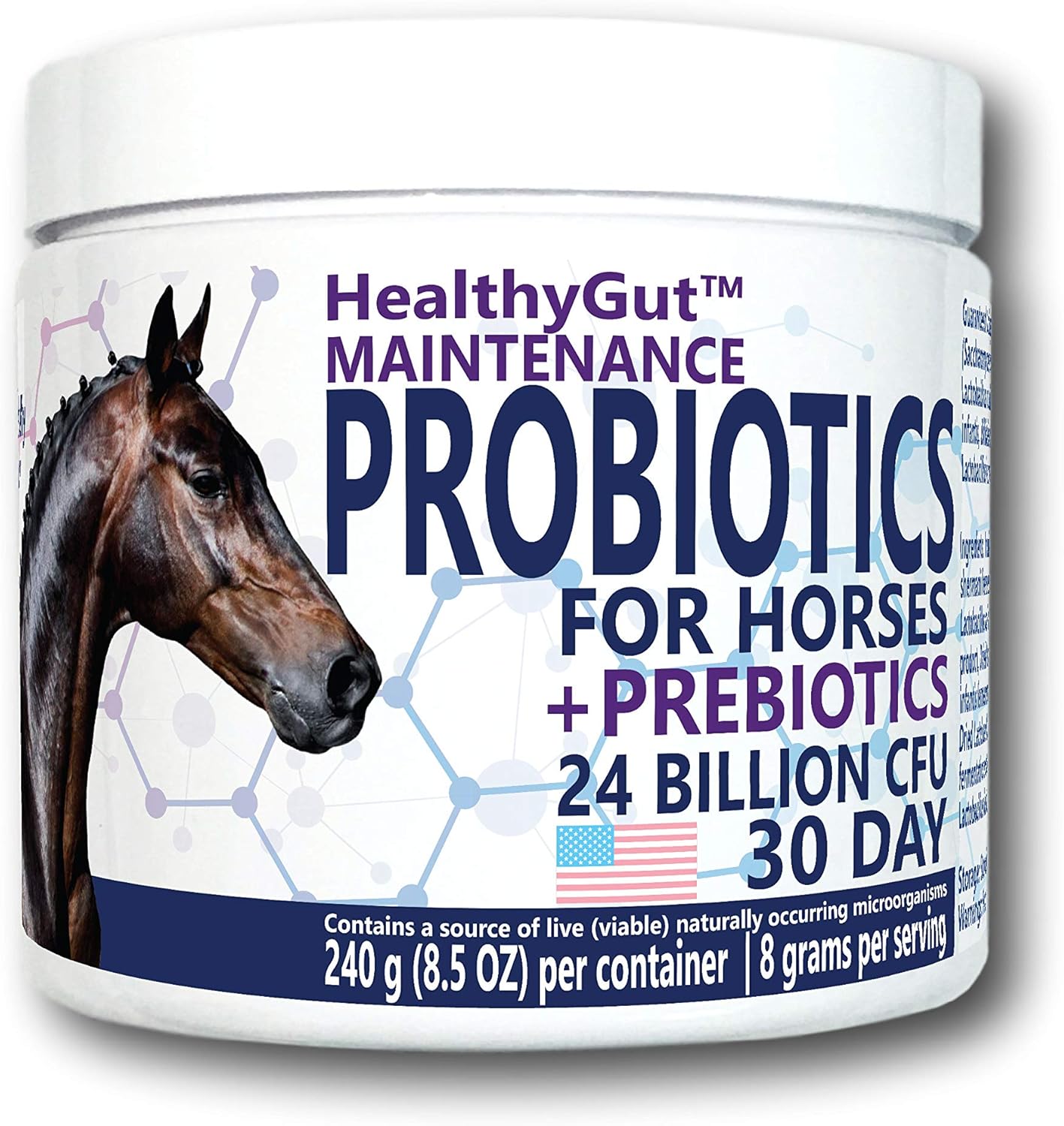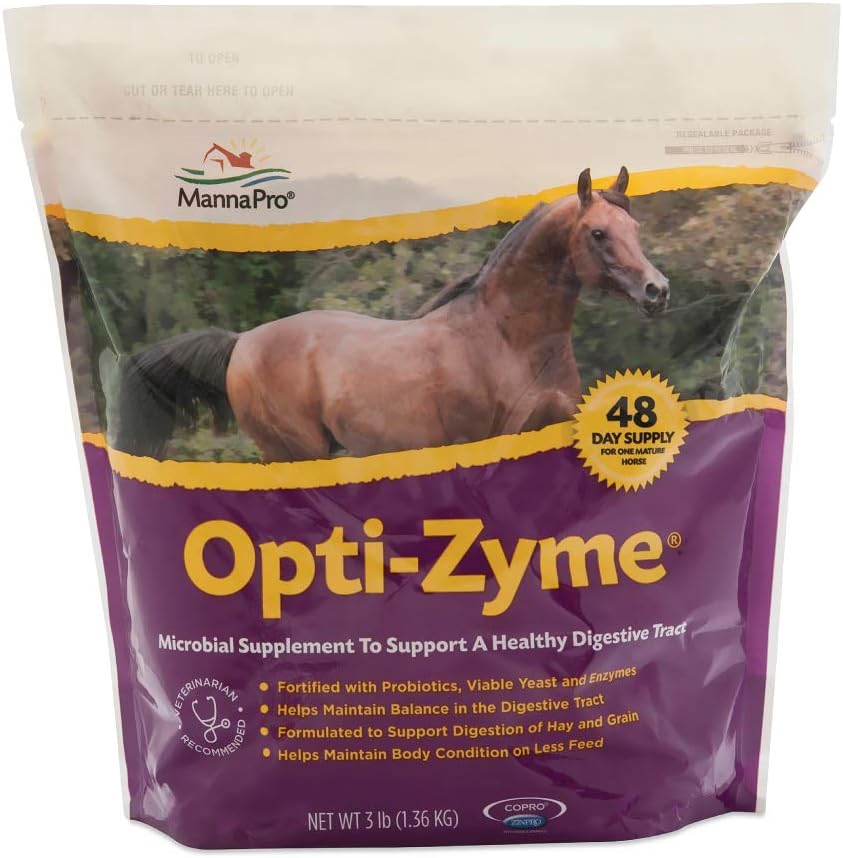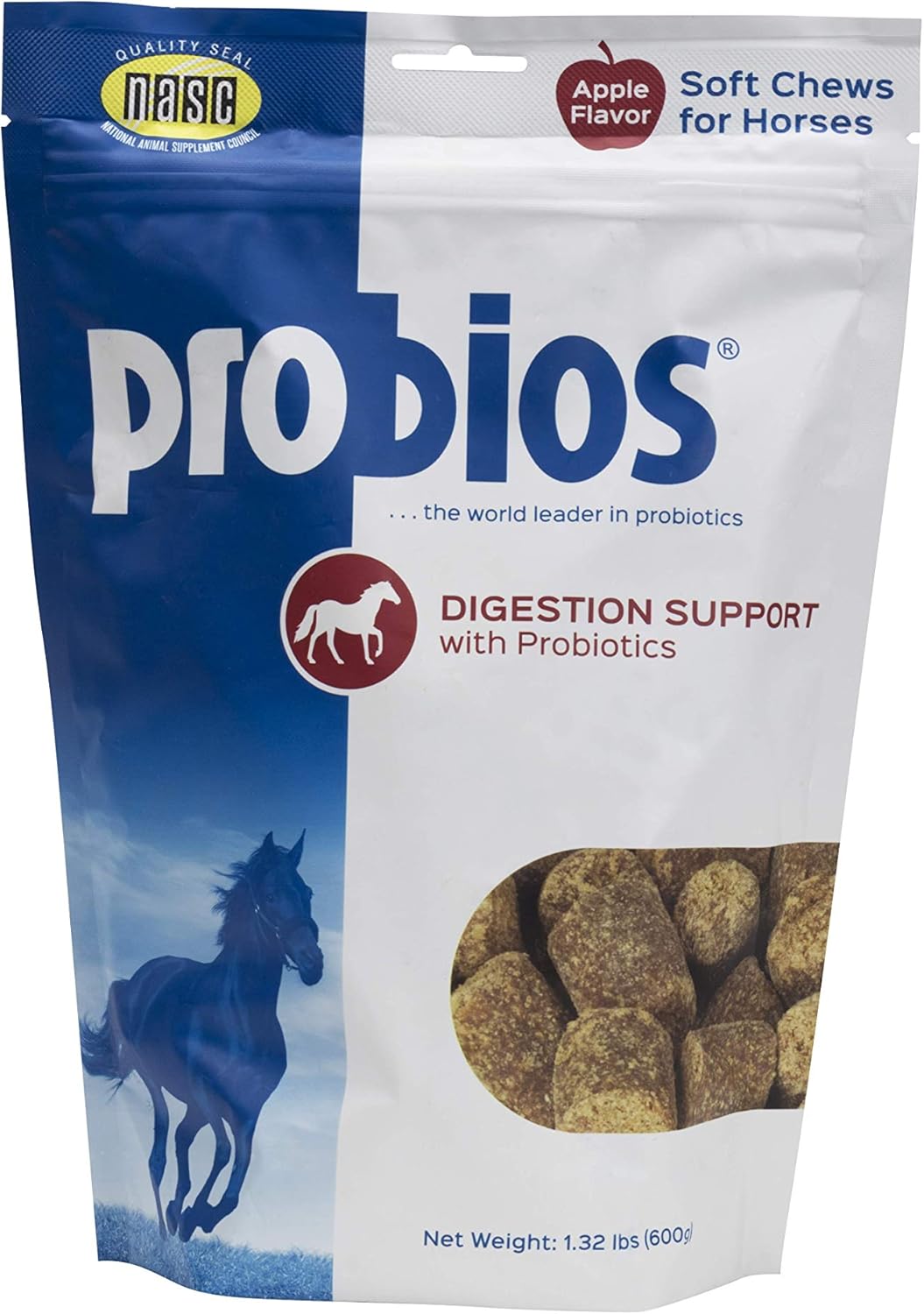Last Updated on January 27, 2022
Probiotic usage in horses and other animals is increasing, with a plethora of digestive support and probiotic supplements. Some commercial feeds are now adding probiotics into their formulas. Even if your horse is not suffering from digestive issues, find out what are the best probiotics for horses as an addition to their daily food routine.
What are Probiotics?
Probiotics are live microorganisms like bacteria and yeast. Like us, horses have both “good” and “bad” bacteria in their bodies. A proper balance of good bacteria is optimal for gut health and a properly functioning digestive system. Humans can get probiotics through some foods and beverages such as yogurts and kombucha. However, horses do not typically take in a natural source on a regular basis.
Most probiotics fall under the Lactobacillus or Bifidobacterium categories of bacterial. Lactobacillus is found in fermented foods and the most common. Bifidobacterium is usually found in select dairy products. Saccharomyces boulardii is yeast in probiotics known to be extremely helpful for digestive problems and diarrhea. The use of probiotics affects nerves used in controlling gut movement. Many supplements will contain both probiotics and prebiotics. Prebiotics can actually change the composition of organisms found in a horse’s gut microbiome. It is a unique plant fiber that acts as a source of food for good bacteria.
Purpose of Horse Probiotics
Probiotics have multiple uses in horses. However, probiotic supplements are still being researched in terms of effectiveness for the hindgut composition. This is the primary reason horse owners use probiotics. Horses use hindgut fermentation, using their “good” bacteria for digestion of most of their feed in the hindgut. Most of a horse’s energy source (up to 70%) comes from the Volatile Fatty Acids. These are produced during the forage digestion process in the cecum for colon absorption.
Horses can benefit from probiotics when there are changes in their lives. This can be a change in feed or feeding patterns, high-stress levels, travel, or anything that may disrupt the balance of the hindgut. As grazers, horses’ digestive systems work at optimal capacity when provided forage access 24/7. If a horse is deprived of hay or grass, the feed was abruptly changed, and high starch concentrated feeds reach the hindgut, disruption is likely to occur. These scenarios would greatly benefit from the addition of probiotics.
Some owners are using probiotic and prebiotic supplements for horses prone to colonic ulcers (typically accompanied by stomach ulcers). Maintaining a neutral pH balance can decrease ulcer occurrences.
Learn more about Ulcer Treatments in Horses
Use of Probiotics
Most probiotic supplements come as an additive for feed. Some come in a powder form, pellet, or crumble. Probios Treats have also become a very popular option. Administration schedules will vary depending on your primary needs. If you are using it for digestive support during a stressful event (such as a competition or travel), probiotics will typically be started prior to the event. For owners treating chronic digestive issues or helping control ulcer development, supplements will be used daily. Antibiotics and chemical deworming can also upset a horse’s natural balance, and owners may opt for probiotic use after these treatments.
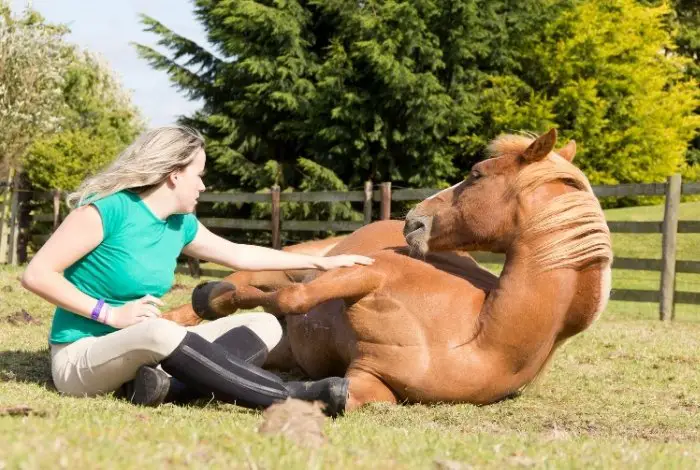
Ongoing Research
Unfortunately, scientists’ knowledge of probiotic use in horses is still very limited. Lack of funding for microbiome research is largely to blame. Prior to this issue, other studies with healthy horses haven’t produced any exceptional or noteworthy data. However, probiotics will have the same basic benefits in horses as they do in other species. Probiotics help stop pathogenic bacterial from overwhelming the digestive tract. They also create antimicrobial factors. The use of pro and prebiotics can also stimulate the immune system and help deploy necessary nutrients. Because they can stimulate anti-inflammatory processes, probiotics are sometimes recommended for chronic skin dermatitis or infections.
Best Probiotic For Horses
#1 Probios Dispersible Powder
Probios is the industry leader in equine probiotic support. We particularly like this formula for its multi-species use, including horses and cattle, house pets, and sheep, or goats. This formula will need to be blended with feed or topped on food. Probios also makes formulas in a pellet and crumble. There is no less than 1 million CFU in each serving. Probios meets high food and supplement safety standards and has obtained an SQF Level 3 certification.
Pros:
- The powder is good for picky eaters
- Reasonable price
- Multi-specie dosage
Cons:
- Must be fed with food
#2 ProbioBlend Probiotics for Horses
From the makers of MareMagic, ProbioBlend uses digestive enzymes and live yeast cultures to boost fiber absorption and maintain proper gut balances. The small 2.5-pound bag is a 188-day supply! This makes it a great option if you lack storage for supplements in a boarding scenario or your horse is picky about supplements on his/her feed. The microencapsulated probiotic is very concentrated, and a little goes a long way. This is one of the top-rated probiotics for picky eaters.
Pros:
- Affordable
- Small serving size
- Added digestive enzymes
- Encapsulated probiotics
Cons:
- Must be fed with food
- Does not state minimum live culture count
#3 Silver Lining Herbs Probiotic Powder for Horses
Silver Lining Herbs makes quality equine health products, and their specialty probiotic formula is no different. They use microencapsulated probiotics which will survive stomach acidity for maximum effectivity in a horse’s hindgut. It also contains six digestive enzymes, which assist in breaking down fats and proteins. Silver Lining Herbs proudly boasts the NASC Quality Seal, which means their facilities and products have gone under rigorous inspection.
Pros:
- High-quality product
- Digestive enzymes
- Encapsulated probiotics
Cons:
- More expensive
- Does not state minimum live culture count
#4 UltraCruz Livestock Probiotic Supplement
This formula contains over 200 million CFU of pro and prebiotics! The tub is suitable for barn or feed room storage with a sturdy plastic lid. The 5 lb tub is moderately priced and provides a 150-day supply. The formula is suitable for use in all livestock. The lack of taste is beneficial with the larger serving size to be fed with or over a feed.
Pros:
- Moderately priced
- High CFU count
- Good for feed room storage
Cons:
- Larger serving sizes
#5 Uckele G.U.T. Supplement
G.U.T. is an excellent option for the picky horse, as most don’t even notice the powder on their feed. It offers pro and prebiotic support with no aluminum to keep the stomach pH balanced. Other ingredients such as Aloe Vera gel, Marshmallow Root, and Slippery Elm bark provide additional digestive comfort and support. Our favorite part? No added sugars, this supplement is sweetened with Stevia!
Pros:
- Great tasting
- No sugar
- Offers stomach coating support
Cons:
- Pricey
#6 Probios Equine Oral Gel
Again, this is one of the most popular and trusted probiotic products on the market. Unlike the daily supplements as a feed dressing, this gel is administered orally. It is a live microbiotic gel with guaranteed delivery via syringe. This is ideal for administration during transport or for newborn foals at birth. Many vets will recommend this product as a must-have “on-hand” barn product.
Pros:
- Monitored administration
- Good for travel
- Easy to store
Cons:
- Expensive
- Not ideal for daily use
#7 Equa Holistics LLC HealthyGut Maintenance Probiotics for Horses
This probiotic contains 20 species of probiotics, 4 grams of prebiotic inulin, and 23 billion CFU per serving! This far exceeds the industry average of 100 million CFU per serving. HealthyGut is made in the USA and has a 100% satisfaction guarantee. It is available in a 30 day and 90-day supply, running horse owners under $1 per day.
Pros:
- High CFU count
- Moderately priced
- Multiple strains
- No sugars
Cons:
- Powder formula only
#8 Manna Pro Opti-Zyme
Opti-Zyme utilizes probiotics, viable yeast, and enzymes for optimal gut health. It is a no-fuss inexpensive option for digestive support recommended for owners wanting to incorporate a daily probiotic, but are not necessarily treating any ailments. The formula is also a powder-based and must be fed over food.
Pros:
- Inexpensive
- Added enzymes
Cons:
- Does not state minimum live culture count
Honorable Mention: Probios Equine Soft Chews Probiotics For Horse
We said it was the industry leader! Probios makes the list again, this time with their soft chew apple-flavored horse cookies. Although not the strongest digestive support product on the market, we love the idea of being able to incorporate occasional or even daily probiotics into a horse’s diet with treats. However, each chew still contains a 150 million CFU count! These are great to keep in the trailer, for treat rewards, or even daily if your horse is extremely wary of supplements and dressings on his/her feed.
Pros:
- Easy to administer
- Different cookie formulas available
- No feed required
Cons:
- Not all horses accept treats
Closing Thoughts
Although research development on equine probiotic usage is minimal, veterinarians and horse owners will both agree about the known benefits of adding probiotics into an animal’s diet. In fact, many vets will administer a probiotic paste to newborn foals as standard procedure. Although studies may not yet completely confirm the assumed benefits of probiotics in the hindgut, we know probiotics have helped countless horses with digestive issues, ulcer development, and types of inflammation. They are also a great add-on to boost digestive efficiency in horses with no ailments.
Have you tried probiotics for you or your horse? Be sure to share this article!
Can a horse overdose on probiotics?
Probiotics are believed to be safe to consume and there is no evidence of possible overdosing. They are also safe to use with other feed supplements. However, there are many different strains of probiotics and not all of them will have the same effect on every horse. Some studies have reported that probiotic supplementation can cause an increase in the numbers of enterobacteria in the gastrointestinal tract of horses. The presence of these bacteria in the gastrointestinal tract could promote inflammatory bowel disease or colitis in horses. Another study reported that a strain of *Lactobacillus reuteri* was able to improve the health of horses with chronic diarrhea and the authors concluded that the use of this probiotic strain could be considered in the treatment of this condition.
Do probiotics prevent colic in horses?
Probiotics are living organisms that promote health in the gastrointestinal tract, by encouraging beneficial bacteria growth. There is a large and growing body of research that suggests that probiotics can have a positive effect on the digestive health of horses. These benefits can include improving digestion, reducing the incidence of colic, and helping horses to maintain a healthy gut flora.
However, this is a controversial subject, and it is not one that can be answered with a simple yes or no. There is a lot of variation between individual horses, and their individual needs, so it is important to work with your veterinarian to understand which probiotics are best for your horse.
Do horses really need probiotics?
Researchers have looked at the health benefits of probiotics for horses. It’s thought that probiotics may have a beneficial effect on the gut and overall health of horses. Probioticis are not likely to show much effect on horses without digestive issues, though. But they might be very beneficial for horses with gastrointestinal problems caused by stress.
In one study, researchers studied the impact of a probiotic supplement on the health of a group of horses. The results showed that the horses experienced fewer intestinal infections, and improved weight gain, compared to a control group of horses that did not receive the probiotic supplement.
When should I give my horse probiotics?
Indeed, probiotics are a key component of the holistic approach to equine health and wellbeing. This is because they help maintain a healthy gut environment and in turn, promote gut health and wellbeing. Probiotics are essential for the growth and development of the digestive system and help to maintain the natural balance of the intestinal microflora. Probiotics are also an integral part of a healthy immune system and have a positive impact on a horse in stressful situations. Probiotics need some time to colonize the gut so it is best to start adding them to your horse’s diet few days ahead of the stressful event and continue until it is over. That will help horses to reduce digestive issues that can arise due to stress. Probiotics are specially beneficial with horses susceptible to chronic diarrhea or mild colics.
Equestrian, Marine Corps vet, and Morgan horse enthusiast.
